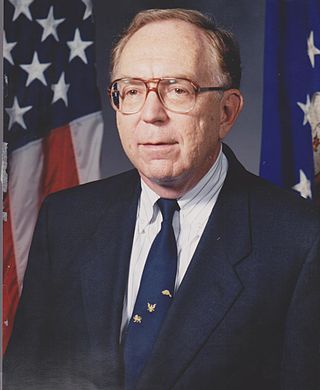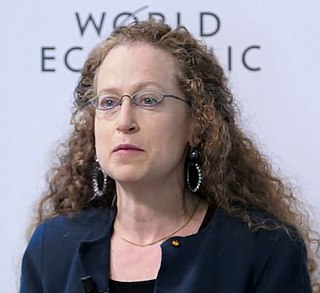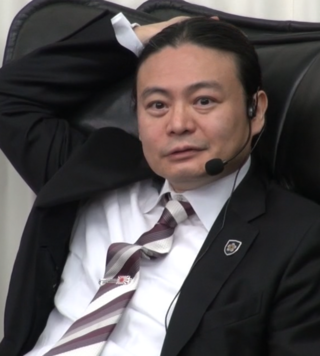Related Research Articles

Carnegie Mellon University (CMU) is a private research university in Pittsburgh, Pennsylvania. The institution was originally established in 1900 by Andrew Carnegie as the Carnegie Technical Schools. In 1912, it became the Carnegie Institute of Technology and began granting four-year degrees. In 1967, it became the current-day Carnegie Mellon University through its merger with the Mellon Institute of Industrial Research, founded in 1913 by Andrew Mellon and Richard B. Mellon and formerly a part of the University of Pittsburgh.

The Heinz College of Information Systems and Public Policy, also known as Heinz College, is the public policy and information college of Carnegie Mellon University in Pittsburgh, Pennsylvania. It consists of the School of Information Systems and Management and the School of Public Policy and Management. The college is named after CMU's former instructor and the later U.S. Senator John Heinz from Pennsylvania.

Edward Albert Feigenbaum is a computer scientist working in the field of artificial intelligence, and joint winner of the 1994 ACM Turing Award. He is often called the "father of expert systems."
Michael John Witbrock is a computer scientist in the field of artificial intelligence. Witbrock is a native of New Zealand and is the former Vice President of Research at Cycorp, which is carrying out the Cyc project in an effort to produce a genuine Artificial Intelligence.

John Patrick "Pat" Crecine was an American educator and economist who served as President of Georgia Tech, Dean at Carnegie Mellon University, business executive, and professor. After receiving his early education at public schools in Lansing, Michigan, he earned a bachelor's degree in industrial management, and master's and doctoral degrees in industrial administration from the Graduate School of Industrial Administration at Carnegie Mellon University. He also spent a year at the Stanford University School of Business.

Philip Lee Wadler is a UK-based American computer scientist known for his contributions to programming language design and type theory. He is the chair of theoretical computer science at the Laboratory for Foundations of Computer Science at the School of Informatics, University of Edinburgh. He has contributed to the theory behind functional programming and the use of monads; and the designs of the purely functional language Haskell and the XQuery declarative query language. In 1984, he created the Orwell programming language. Wadler was involved in adding generic types to Java 5.0. He is also author of "Theorems for free!", a paper that gave rise to much research on functional language optimization.
The Language Technologies Institute (LTI) is a research institute at Carnegie Mellon University in Pittsburgh, Pennsylvania, United States, and focuses on the area of language technologies. The institute is home to 33 faculty with the primary scholarly research of the institute focused on machine translation, speech recognition, speech synthesis, information retrieval, parsing, information extraction, and multimodal machine learning. Until 1996, the institute existed as the Center for Machine Translation, which was established in 1986. Subsequently, from 1996 onwards, it started awarding degrees, and the name was changed to The Language Technologies Institute. The institute was founded by Professor Jaime Carbonell, who served as director until his death in February 2020. He was followed by Jamie Callan, and then Carolyn Rosé, as interim directors. In August 2023, Mona Diab became the director of the institute.

James Ze Wang is a Chinese-American computer scientist. He is a distinguished professor of the College of Information Sciences and Technology at Pennsylvania State University. He is also an affiliated professor of the Molecular, Cellular, and Integrative Biosciences Program; the Computational Science Graduate Minor; and the Social Data Analytics Graduate Program. He is co-director of the Intelligent Information Systems Laboratory. He was a visiting professor of the Robotics Institute at Carnegie Mellon University from 2007 to 2008. In 2011 and 2012, he served as a program manager in the Office of International Science and Engineering at the National Science Foundation. He is the second son of Chinese mathematician Wang Yuan.

Justine M. Cassell is an American professor and researcher interested in human-human conversation, human-computer interaction, and storytelling. Since August 2010 she has been on the faculty of the Carnegie Mellon Human Computer Interaction Institute (HCII) and the Language Technologies Institute, with courtesy appointments in Psychology, and the Center for Neural Bases of Cognition.

Edmund Melson Clarke, Jr. was an American computer scientist and academic noted for developing model checking, a method for formally verifying hardware and software designs. He was the FORE Systems Professor of Computer Science at Carnegie Mellon University. Clarke, along with E. Allen Emerson and Joseph Sifakis, received the 2007 ACM Turing Award.
John D. Lafferty is an American scientist, Professor at Yale University and leading researcher in machine learning. He is best known for proposing the Conditional Random Fields with Andrew McCallum and Fernando C.N. Pereira.

Eric Poe Xing is an American computer scientist whose research spans machine learning, computational biology, and statistical methodology. Xing is founding President of the world’s first artificial intelligence university, Mohamed bin Zayed University of Artificial Intelligence (MBZUAI).
Angel G. Jordan was a Spanish-born American electronics and computer engineer known as the founder of the Software Engineering Institute (SEI) and co-founder of the Robotics Institute at Carnegie Mellon University (CMU) and served on its faculty for 55 years, since 2003 as Emeritus. He was instrumental in the formation of the School of Computer Science (SCS) at Carnegie Mellon. He has made contributions to technology transfer and institutional development. He served as Dean of Carnegie Mellon College of Engineering and later as the provost of Carnegie Mellon University.

The Computational Biology Department (CBD) is a division within the School of Computer Science at Carnegie Mellon University in Pittsburgh, Pennsylvania, United States. It is located in the Gates-Hillman Center. Established in 2007 by Robert F. Murphy as the Lane Center for Computational Biology with funding from Raymond J. Lane and Stephanie Lane, CBD became a department within the School of Computer Science in 2016.
Gregory Grefenstette is a French and American researcher and professor in computer science, in particular artificial intelligence and natural language processing. As of 2020, he is the chief scientific officer at Biggerpan, a company developing a predictive contextual engine for the mobile web. Grefenstette is also a senior associate researcher at the Florida Institute for Human and Machine Cognition (IHMC).
David Lansing Dill is a computer scientist and academic noted for contributions to formal verification, electronic voting security, and computational systems biology.
Mirella Lapata FRSE is a computer scientist and Professor in the School of Informatics at the University of Edinburgh. Working on the general problem of extracting semantic information from large bodies of text, Lapata develops computer algorithms and models in the field of natural language processing (NLP).

Hideto Tomabechi is a Japanese cognitive scientist computer scientist.
Preslav Nakov is a computer scientist who works on natural language processing. He is particularly known for his research on fake news detection, automatic detection of offensive language, and biomedical text mining. Nakov obtained a PhD in computer science under the supervision of Marti Hearst from the University of California, Berkeley. He was the first person to receive the prestigious John Atanasov Presidential Award for achievements in the development of the information society by the President of Bulgaria.
Christopher David Manning is an Australian computer scientist, best known for co-developing GloVe word vectors and the bilinear or multiplicative form of attention in artificial neural networks and for his books Foundations of Statistical Natural Language Processing (1999) and Introduction to Information Retrieval (2008). He is the Thomas M. Siebel Professor in Machine Learning and a professor of Linguistics and Computer Science at Stanford University. He was previously President of the Association for Computational Linguistics (2015) and he has received an honorary doctorate from the University of Amsterdam (2023).
References
- 1 2 "The IUC 50th Anniversary Symposium at Stanford University" (PDF). September 7, 2013. p. 8. Retrieved February 5, 2017.
- ↑ David A. Evans; Steve K. Handerson; Robert G. Lefferts; Ira A. Monarch (November 1991). A Summary of the CLARIT Project. Report No. CMU-LCL-91-2 (Report). Carnegie Mellon University Department of Philosophy. Retrieved February 5, 2017.
- ↑ Edward A. Galloway; Gabrielle V. Michalek (1995). "The Heinz Electronic Library Interactive On-Line System (HELIOS)". Public Access Computer Systems Review. 6 (4).
- ↑ "Carnegie Mellon Receives $1 Million to Develop Electronic Archive for Heinz Papers". Press Release. Carnegie Mellon University. August 25, 1994. Retrieved February 4, 2017.
- ↑ "JustSystems Evans Research, Inc. is the new name of Clairvoyance Corporation". JSERI. Archived from the original on June 2, 2009. Retrieved February 4, 2017.
- ↑ Noun-phrase analysis in unrestricted text for information retrieval, David A. Evans and Chengxiang Zhai. Proceedings of the 34th Annual Meeting of the Association for Computational Linguistics, 1996, pp. 17–24
- ↑ "David A. Evans, PhD, FACMI". Biography and photograph when elected. American College of Medical Informatics. 1999. Retrieved February 7, 2017.